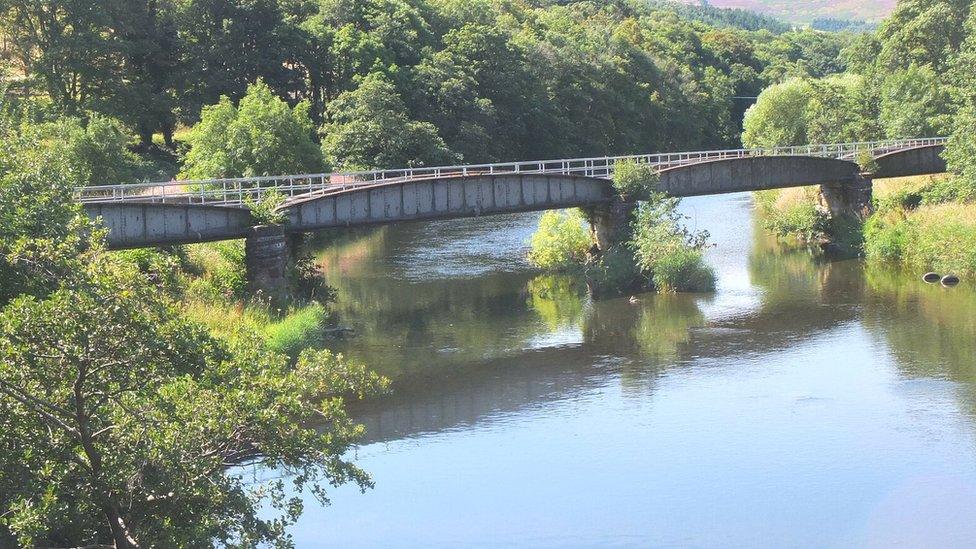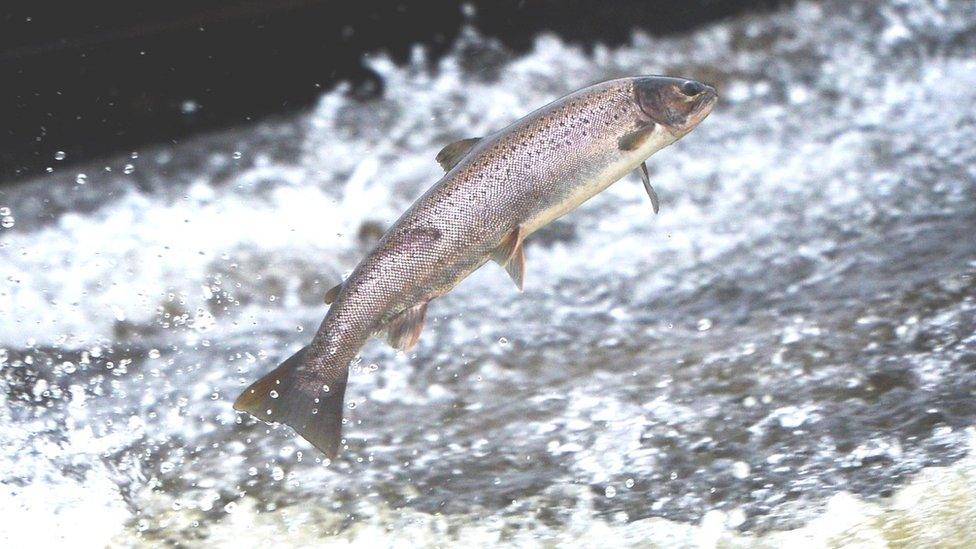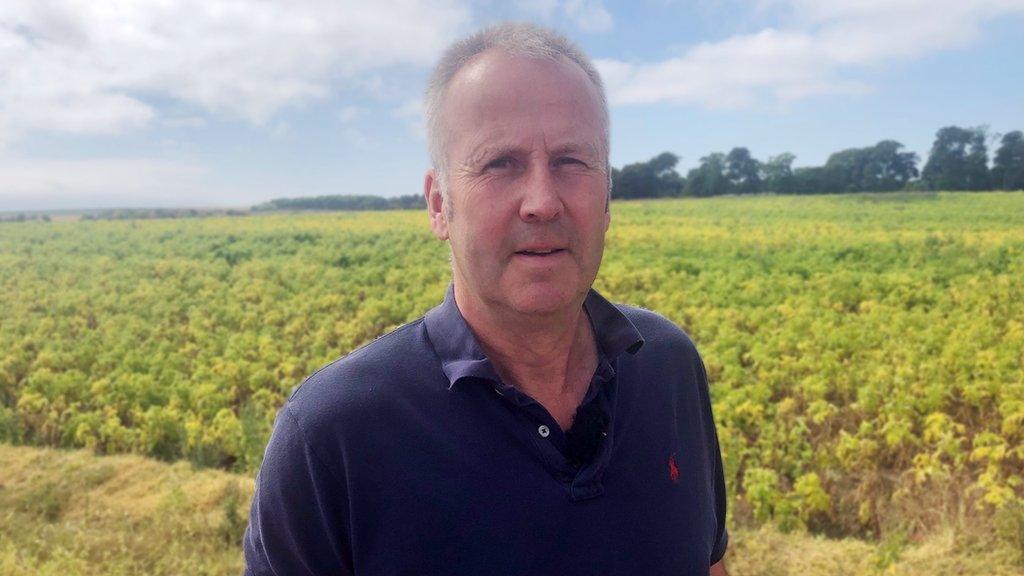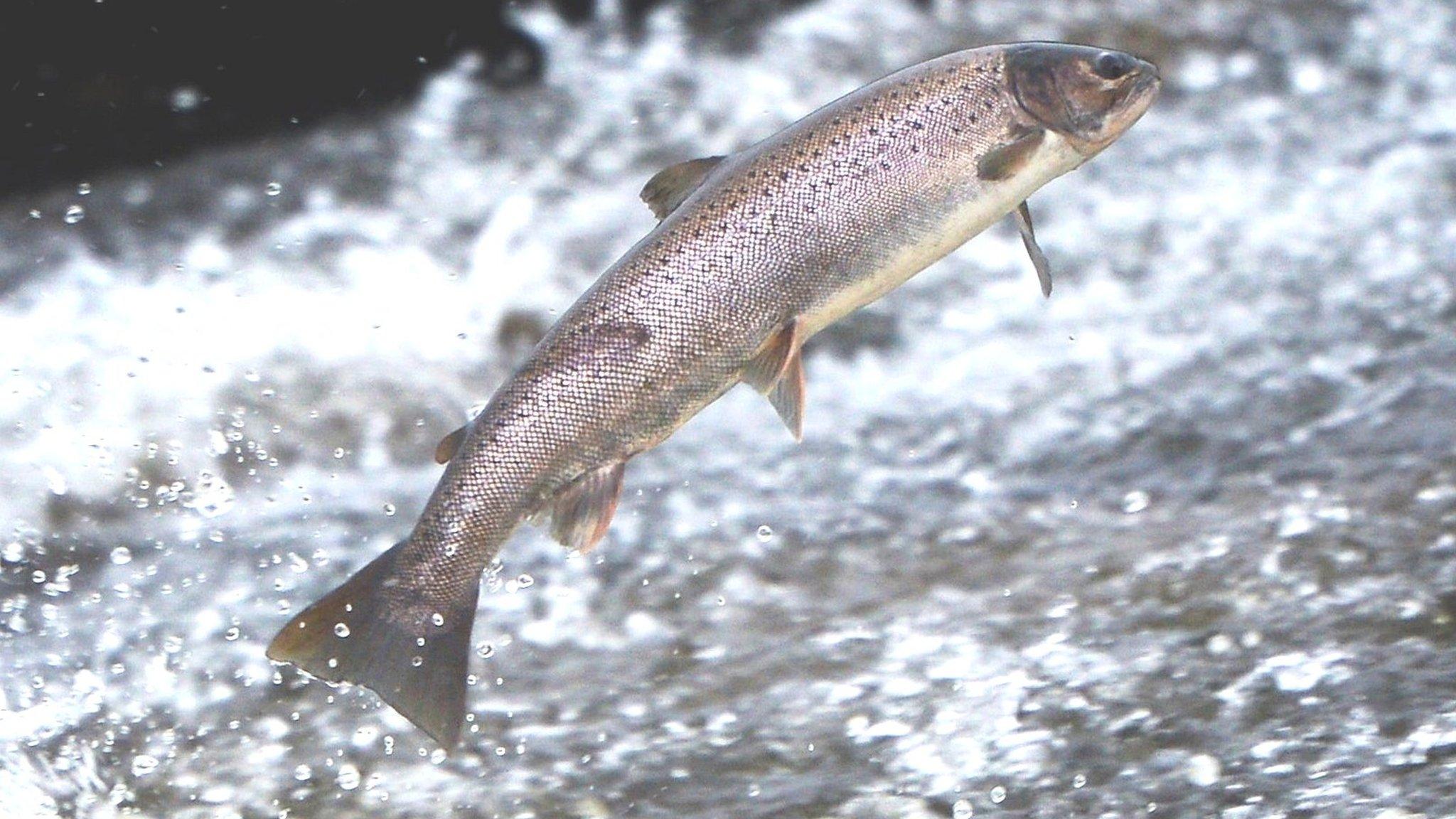Water ban lifted in Fife but not in Borders
- Published

Water extraction licences on the Tweed will be suspended from midnight on Thursday
Water abstraction bans on the River Eden in Fife have been lifted after recent rainfall.
The Scottish Environment Protection Agency (Sepa) thanked farmers in the area for their "strong compliance".
However, it has confirmed licence suspensions on the River Tweed in the Borders will go ahead.
It said the Tweed continued to show "signs of stress and little improvement" from "limited recent rainfall" in the area.
The majority of water abstraction licences on the River Eden were suspended from Sunday, prompting warnings of potential crop failure.
They are now in a position to be lifted but new suspensions will start on parts of the Tweed from midnight on Thursday.
'Significant losses'
Sepa said that prolonged dry weather was still forecast which meant any improvement in the situation was likely to be short-term and water users were still being urged to be "efficient".
Farmers' union NFU Scotland said the reinstatement of licences would come as a "huge relief" for vegetable growers in Fife and potentially stave off "significant financial losses".
It said Sepa's commitment to constantly reviewing water flows and altering licensing arrangements as quickly as possible was "appreciated".
But it said the suspension of licences on the Tweed would be "damaging" to vegetable growers in the Borders.

The River Tweed Commission has welcomed the licence suspension
The River Tweed Commission (RTC) welcomed the move in the face of a long-term forecast of a return to dry conditions.
It has warned that low river flows and high temperatures can result in the death of fish, invertebrates and plants.
Jamie Stewart, clerk to the RTC, said it was pleased with the suspension announcement but it still had concerns that current water scarcity plans were "inadequate" to protect fish stocks.
The Scottish government has said the system is based on expert advice and added that it took the issue of declining salmon numbers seriously.
Related topics
- Published14 August 2022

- Published10 August 2022
